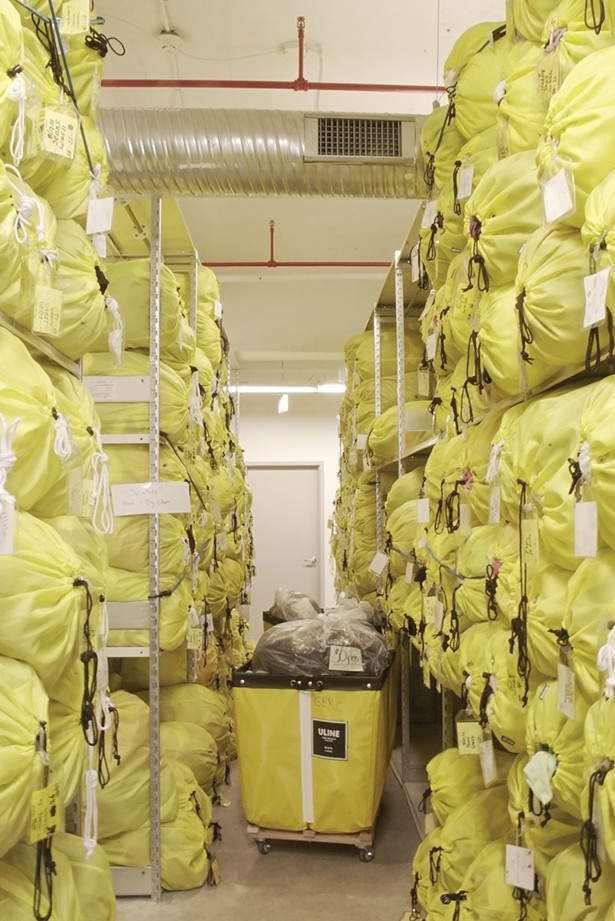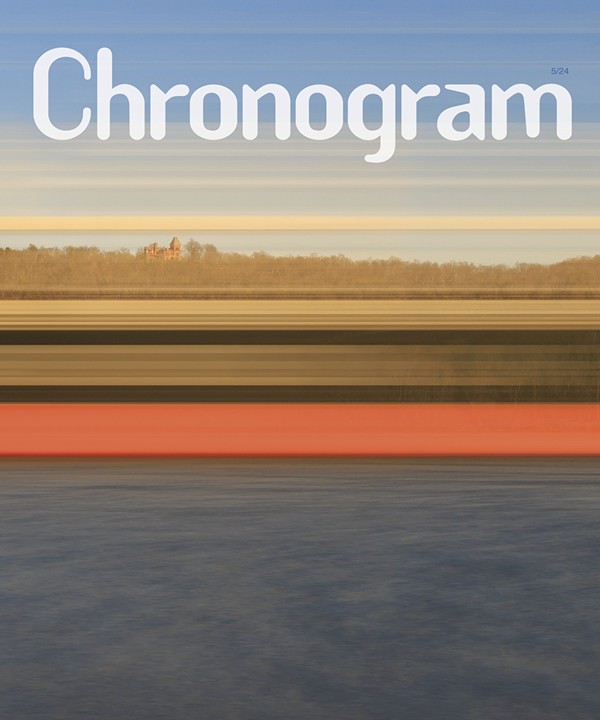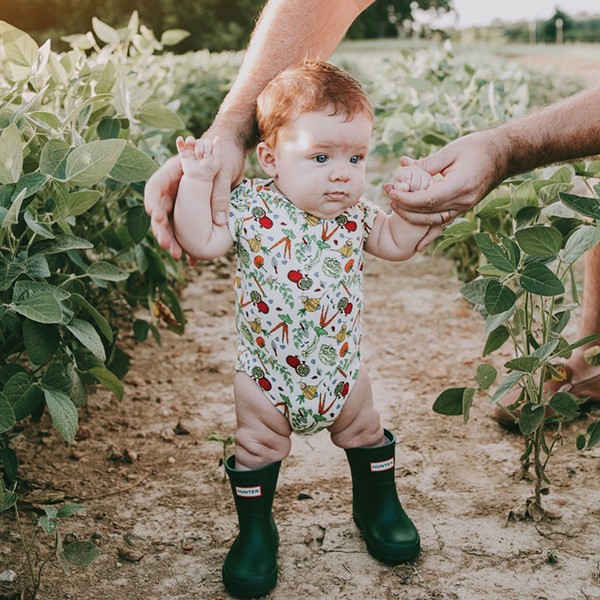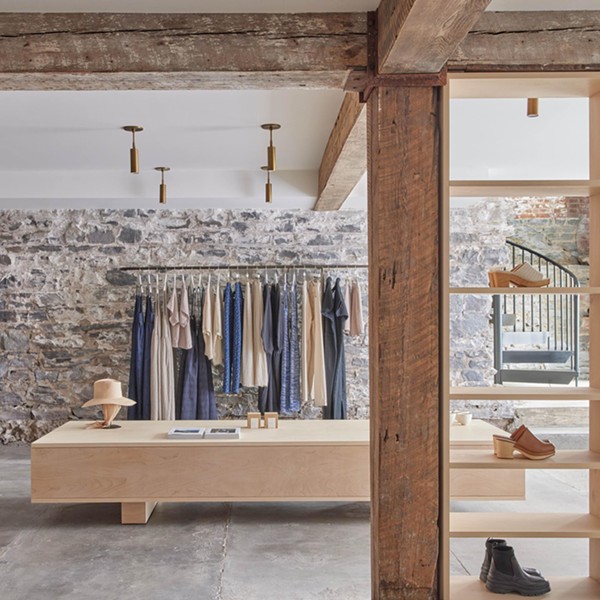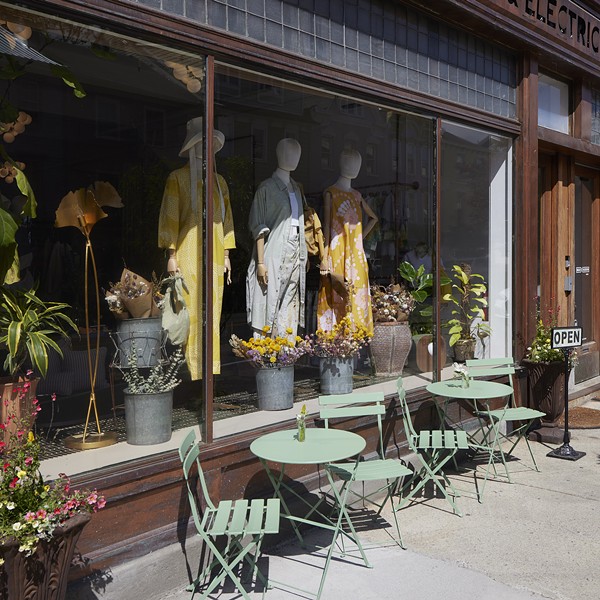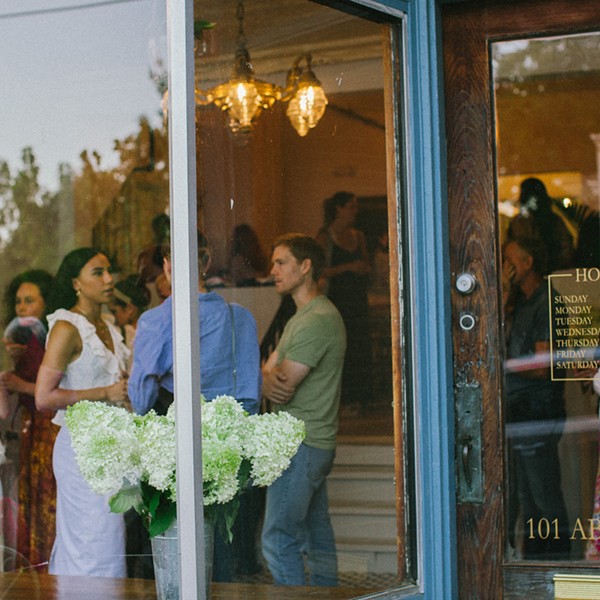"We don't have a solution for everything, but we don't throw away anything," says Gama. Walking around the Tiny Factory floor, one sees buckets of Eileen Fisher tags and buttons. Gama estimates that of the 35 percent of unsellable goods, 20 percent of the material has no current remanufacturing purpose within the company. (Shoes fall into this category, piling up like hopes for the future.)
Fashion is an industry obsessed with dramatic reveals, so the fact that Eileen Fisher spent a decade quietly moving the needle on their own climate footprint is revolutionary. That the brand developed new methods to do so likewise makes them a standard bearer for corporate responsibility. However, Fisher herself is self-effacing about her leadership in the industry. In a 2013 New Yorker profile, she told writer Janet Malcolm, "I'm just an ordinary person. It's only because I created this company and these clothes that I'm interesting."
A Sense of Urgency
Tiny Factory (the linguistic opposite of Mass Consumption) has strong feminine energy. Upstairs is the Eileen Fisher Learning Lab, where employees undergo professional development and the brand hosts workshops, most of them geared toward women.
On the day I tour the facility, there is a pile of Gloria Steinem books left over from a recent event. The lobby of the lab is decorated with (live) plants, cream-colored wall hangings, and throw pillows—examples of the home goods also being produced by Waste No More. The Hudson River sparkles just beyond the Metro-North tracks. "I'm very water-oriented, I like living on the water," Fisher tells me. (She lives in Irvington, in a farmhouse-inspired home with river views.) A trip to China in the early 2000s spurred Fisher to do more to curb the company's environmental footprint. "I had personally become acutely aware of the water crisis that was happening not just in our country on the West Coast but across Asia too. It just seemed urgent to begin to do more."
Fisher started her brand in 1984 with the idea that quality natural fibers and timeless design would automatically lend themselves to fashion sustainability. (It takes 2,700 liters of water to make one cotton shirt, according to the World Resources Institute.) "I feel responsible for some of the mess without being this aware in the early days, thinking organics were good for the environment," Fisher says, "I felt good about that without realizing I was part of the problem." In 2012, the power of water and climate change hit home when Fisher's Irvington facilities were walloped by Hurricane Sandy. The New York Times reported that "even the cash in the register at the Irvington store had to be taken home and blown dry" and the total loss amounted to "$1.5 million, 12 Dumpsters, and eight moving-truck-size mobile storage units of damaged goods."
Fisher was honored by environmental nonprofit Riverkeeper in 2015. The clean water advocates called her "a strong and loyal ally in the work to protect the Hudson River, and a model in the sustainable business community."
An Industry Leader
In addition to launching Waste No More's online presence this spring, the brand showed off the potential of their textiles in simultaneous Brooklyn and Milan exhibitions. Textile and product designer Salem Van Der Swaagh points to the symbolism of the old Lord & Burnham space in Irvington: "There's something transparent about a greenhouse," she says. "And I think you're making a company that's very transparent but also, of course, green." However, for a long time Eileen Fisher was too nervous to advertise the risks she was taking—like that first $20,000 needle-felting machine. "We were just overwhelmed by how much work had to be done," says Fisher. "We were saying 'Just take baby steps. Let's just get started.'"
Now that their methods are out in the open, the "teach a person to fish" phase of Waste No More is in motion. Streetwear designers Public School and Heron Preston have spent time at Tiny Factory learning their methods. So have representatives from global fast-fashion conglomerate H&M. In looking to change the world, Eileen Fisher has brought the world to Irvington.
"We realized that we need to share what we know, we need to teach other people, because we're like a drop in the bucket. We're one mid-sized company, and that's great, but unless the rest of the industry follows then we're not going to solve the problem," Fisher says. "We can't do it alone."









